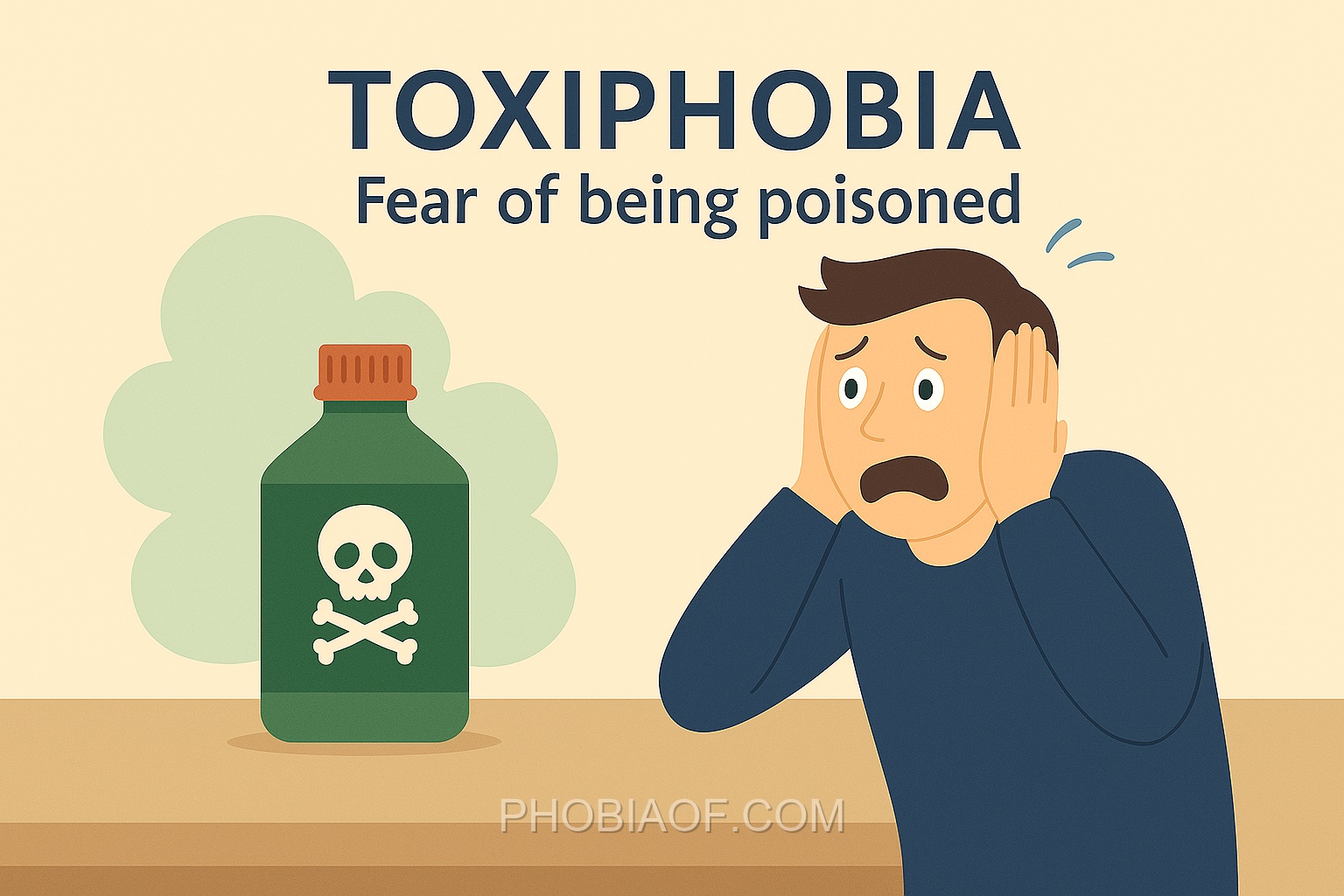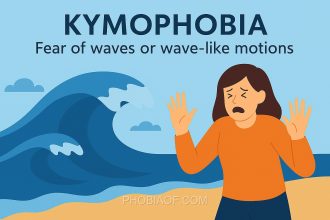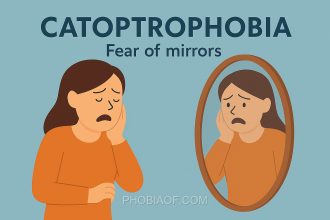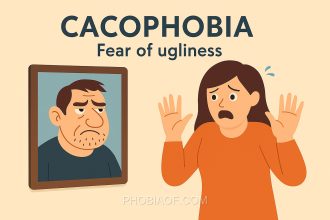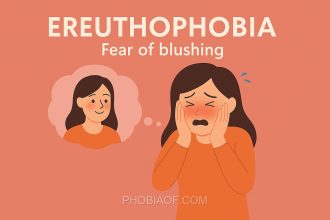Have you ever hesitated to eat food or use a product, fearing it might be contaminated or poisoned? If so, you’ve experienced a small glimpse of what individuals with toxiphobia face daily. Toxiphobia, known as the fear of being poisoned, is a specific phobia that can significantly impact a person’s life.
The term toxiphobia is derived from the Greek words “toxi,” meaning poison, and “phobos,” meaning fear. It’s a deep-rooted fear that can lead to anxiety and avoidance behaviors, as individuals are constantly vigilant about the risk of poisoning.
People with toxiphobia may experience a range of effects, such as:
- Reluctance to consume food or beverages due to fear of contamination.
- Avoidance of certain environments or products thought to pose a poisoning risk.
- Heightened anxiety and stress in situations where they feel vulnerable to being poisoned.
Understanding and addressing toxiphobia with empathy and expert guidance can help those affected to lead more comfortable and fulfilling lives.
Causes of Toxiphobia
Toxiphobia, the fear of being poisoned, can arise from various sources. Understanding these potential causes can help in addressing and managing this phobia effectively. Below are some common reasons why someone might develop toxiphobia:
- Genetic Predisposition:
Some individuals may have a genetic tendency towards anxiety disorders, including specific phobias like toxiphobia. If a close family member has a history of phobias or anxiety disorders, this could increase the likelihood of developing similar fears.
- Traumatic Experiences:
Experiencing or witnessing a poisoning incident can lead to a lasting fear of being poisoned. Such traumatic events can imprint a strong emotional response, triggering anxiety whenever the individual encounters related stimuli.
- Learned Behavior:
Observing someone else, particularly a parent or caregiver, display intense fear of poisoning can lead to the development of toxiphobia. This learned behavior is more common in children who may adopt the fears of adults around them.
- Psychological Factors:
Individuals with a general predisposition to anxiety or obsessive-compulsive tendencies might be more susceptible to developing toxiphobia. This can be due to an overestimation of threat and a heightened sense of vulnerability.
- Environmental Factors:
Media reports and news stories about poisoning cases can contribute to the fear of being poisoned. Sensationalized coverage can make these incidents seem more common, increasing anxiety in susceptible individuals.
While these are some common causes, it’s essential to recognize that each person’s phobia can have unique origins. Research continues to explore these areas to better understand how phobias develop and how they can be treated effectively.
Symptoms of Toxiphobia
Toxiphobia, the irrational fear of being poisoned or coming into contact with toxic substances, can be a debilitating condition. Individuals with this phobia often experience intense fear or anxiety when faced with situations or objects they perceive as potentially toxic. Recognizing the symptoms is the first step towards understanding and addressing this phobia.
Common Physical Symptoms:
- Panic attacks characterized by shortness of breath, chest pain, or feelings of impending doom.
- Sweating, especially in situations perceived as risky or when discussing potential toxins.
- Rapid heartbeat or palpitations when exposed to perceived threats.
- Trembling or shaking, often uncontrollably.
- Gastrointestinal distress such as nausea or stomach cramps.
Emotional and Behavioral Symptoms:
- Avoidance of places, people, or situations that might expose them to toxins, sometimes to the point of disrupting daily routines.
- Overwhelming dread or preoccupation with thoughts of toxicity and contamination.
- Hypervigilance in checking food labels, household products, and environmental factors for potential toxins.
- Difficulty concentrating on tasks due to persistent worry about exposure to toxins.
- Seeking excessive reassurance from others about safety from toxic substances.
When severe, these symptoms can significantly interfere with daily life, impacting relationships, work, and overall well-being.
Treatment for Fear of Being Poisoned (Toxiphobia)
Dealing with a fear of being poisoned, known as toxiphobia, can be challenging, but it’s important to remember that this phobia can be treated and managed over time. Many people have successfully overcome their fears and regained control over their lives. Below are some proven therapies and coping strategies to help you conquer this fear.
Therapies
Various therapies have been proven effective in treating toxiphobia:
- Exposure Therapy:
This therapy involves gradually exposing yourself to the fear in a controlled and safe environment. The goal is to desensitize yourself to the fear over time, reducing anxiety and fear responses. A therapist can guide you through this process at a pace that feels comfortable for you.
- Cognitive-Behavioral Therapy (CBT):
CBT helps you identify and change the negative thought patterns that contribute to your fear. By working with a therapist, you can learn to replace these thoughts with more balanced and realistic ones, reducing the power they have over you.
- Counseling:
Speaking with a counselor can provide a supportive space to explore the root of your phobia and work through any underlying issues contributing to your fear.
Self-Help Coping Techniques
In addition to professional therapy, these self-help techniques can further support your journey:
- Relaxation Exercises:
Practicing relaxation exercises such as deep breathing, progressive muscle relaxation, or guided imagery can help reduce anxiety levels and promote a sense of calm.
- Meditation:
Regular meditation practice can help you develop mindfulness and reduce the impact of anxious thoughts.
- Support Groups:
Joining a support group can provide comfort and encouragement from others who understand what you’re going through. Sharing experiences and coping strategies can be incredibly empowering.
Medication
In some severe cases, medication such as anti-anxiety drugs might be prescribed by a healthcare professional to help manage symptoms. However, the focus should remain on therapy and developing coping skills for long-term success.
Remember, seeking professional help is a strong and positive step if your phobia is interfering with your daily life. With the right support and strategies, overcoming toxiphobia is entirely possible.
Conclusion
Understanding the causes and symptoms of toxiphobia can be a powerful step towards addressing and overcoming the fear of being poisoned. By recognizing the underlying factors and acknowledging the ways in which this phobia manifests, individuals can begin to demystify their fears and take proactive measures towards recovery.
It is important to remember that many people successfully manage or overcome their phobias with time, patience, and the right support. Whether it’s through self-help strategies, professional therapy, or medical guidance, there are numerous pathways to help mitigate the impacts of toxiphobia.
If you or someone you know is struggling with this phobia, consider reaching out to a mental health professional or talking to a doctor for support. Organizations and healthcare providers often offer resources and therapeutic interventions designed to help individuals cope effectively. Remember, seeking help is a courageous and vital step towards reclaiming control over your life.
With understanding, support, and the right tools, overcoming toxiphobia is not only possible but achievable. Take heart in knowing that you are not alone, and with each step forward, you are moving closer to a life free from the constraints of fear.
